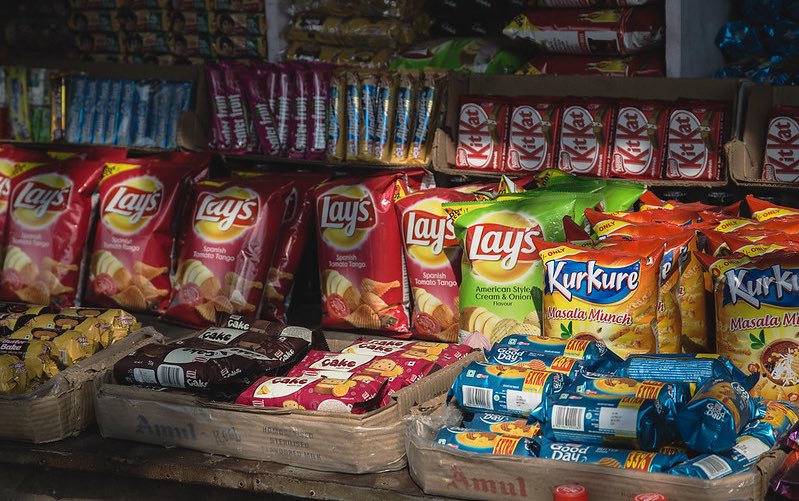On Dec. 16, The Lancet published a new series of papers on The Double Burden of Malnutrition—the combination of undernutrition (stunting, wasting, and micronutrient deficiencies) with overweight, obesity, and associated non-communicable diseases (NCDs). This term has been around for nearly three decades, but the rapid shifts in global and national food systems and their profound implications for the nutritional well-being of most people on the planet—and for the planet itself—justify the journal’s label, “a new nutrition reality.”
The four papers in the series—on dynamics, etiological pathways and consequences, double-duty actions and economic effects of the double burden—are all excellent.
But there’s something missing.
The series is relatively blind to the political and commercial drivers behind the double burden, and to the way in which different forms of inequity drive food system dysfunctionality.
The introductory commentary—“A New Nutrition Manifesto for a New Nutrition Reality”—does surface the political dimension well (e.g. “we must address the underlying drivers that incentivize endless market and consumption growth over human and planetary health”). But these issues and challenges are not systematically addressed in what follows.
In Dec. 2016, Ilona Kickbusch and colleagues published a Lancet commentary titled “Commercial Determinants of Health” arguing for a new framing of a “synergistic, multidisciplinary field that addresses the drivers and channels through which corporations propagate the non-communicable diseases pandemic.”
A whole slew of papers has emerged in the last few years on the commercial determinants of health (including NCDs), but nutrition tends to be treated relatively apolitically, while simplistic statements about the private sector abound. And yet, now more than ever—given this “new reality” and given the momentum building towards the Tokyo Nutrition for Growth Summit in 2020—we need a much stronger focus on the commercial determinants of malnutrition.
There is a risk that the recommendations for commitments being developed by the Tokyo 2020 working groups fail to adequately take into account commercial drivers—the way in which the products and practices of many transnational food companies continue to drive the problem, as their corporate social responsibility people argue for a seat at the table. Again, the commentary captures this well:
….we must recognise the damage and mistrust that result from incompatible partnerships with stakeholders whose behaviour runs counter to human or planetary health. The food industry has an important role in implementing and delivering change. However, companies cannot be allowed to influence and interfere in public policy making or bias the science that underpins this process. While constructive dialogue is necessary, a default seat at the table for private-sector representatives should not be assumed and policy development processes need to be firewalled from vested interests.
As an aside here, if we are serious about human and planetary health, why is “growth” still the main focus of the Tokyo event? As Johanna Ralston asked at the London launch of the Lancet series—why not “Nutrition for Sustainable Development”?
Interestingly, the political dimension became quite prominent in the discussion at the London launch when a question was raised about an international code or framework convention on ultra-processed foods. Similarly, the excellent Lancet Commission report on The Global Syndemic of Obesity, Undernutrition, and Climate Change (released in Jan. 2019 and discussed here) made a call for such a framework convention. The report included a strong analysis of the political and corporate drivers of the syndemic—perhaps the links between this series and that earlier work could have been strengthened.
Relatedly, we need to raise the profile of human rights. In October, 180 health and nutrition experts from 38 countries signed this open letter to the UN High Commissioner for Human Rights and the Director-General of the World Health Organization calling on them to initiate an inclusive process to develop guidelines on human rights, healthy diets and sustainable food systems. The successful application of rights-based thinking and action in addressing the HIV pandemic was cited.
Nine of the 10 double duty actions recommended by the double burden series relate to redesigning and scaling up priority interventions and programs in health, social protection, education, and agri-food systems. The 10th focuses on implementation of policies to improve food environments. But before we get to policy implementation, we need to look upstream to understand how political attention and policy traction is achieved (or not) in countries where the double burden is prominent.
Over six years ago, the Lancet Maternal and Child Nutrition 2013 series included a paper on the politics of reducing malnutrition. While we focused more on undernutrition in this paper, the questions raised are relevant to the double burden:
“… how can enabling environments and processes be cultivated, sustained and ultimately translated into results on the ground”? How has high-level political momentum been generated? What needs to happen to turn this momentum into results? How to ensure that high-quality, well-resourced interventions for nutrition are available to those who need them, and that agriculture, social protection, water and sanitation systems and programmes are proactively reoriented to support nutrition goals?
This requires a focus on the political economy of the double burden, and on the dynamics and pathways of (policy) change—another research priority to add to the list in the third paper. A recent initiative—Stories of Challenge—aims to shed light on some of these issues and questions in the coming months, and it is hoped this will be a prominent theme of the forthcoming World Public Health Nutrition Association conference in Brisbane in April 2020.
Stuart Gillespie is a Senior Research Fellow with IFPRI’s Poverty, Health, and Nutrition Division. He leads work for the CGIAR Research Program on Agriculture for Nutrition and Health (A4NH) on Supporting Policies, Programs and Enabling Research through Action.







